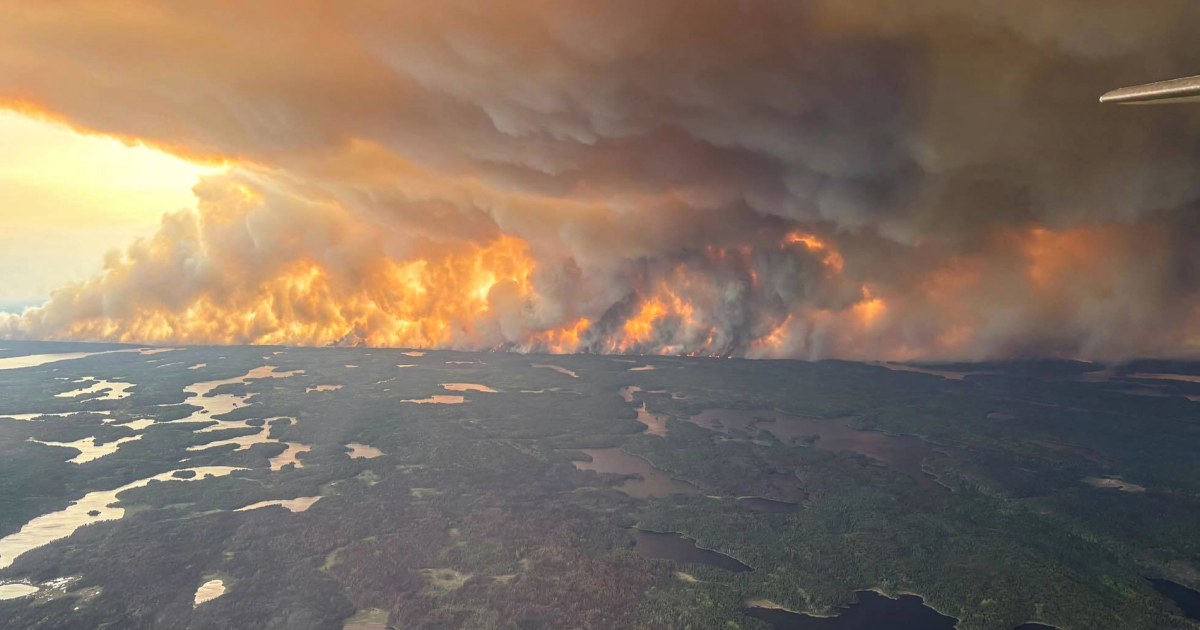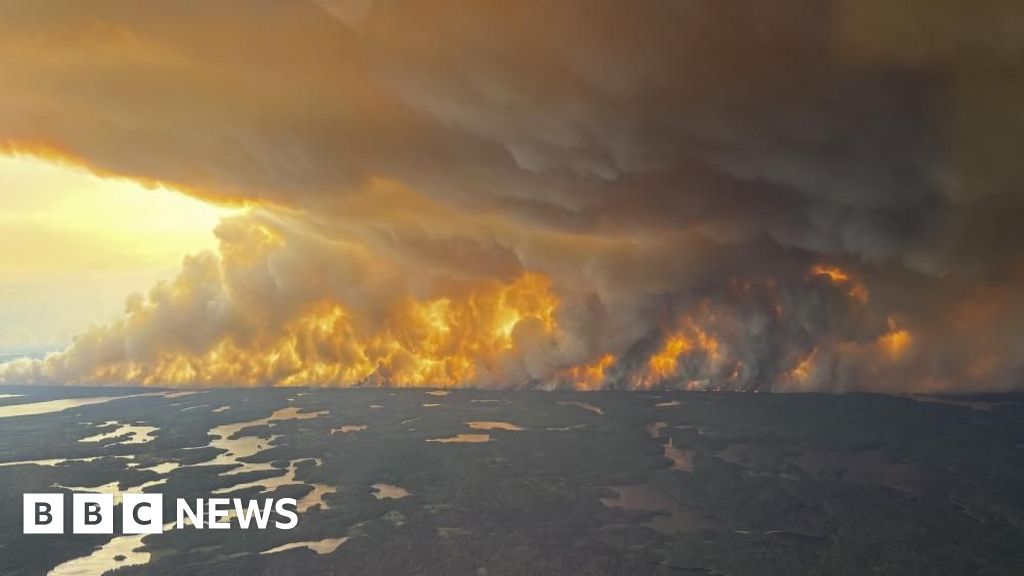Wildfires in Canada Lead to Mass Evacuations and Air Quality Alerts Across U.S.
Over 25,000 residents evacuated in Canada as wildfires worsen air quality in the U.S., prompting health warnings and emergency responses.
Subscribe to unlock this story
We really don't like cutting you off, but you've reached your monthly limit. At just $5/month, subscriptions are how we keep this project going. Start your free 7-day trial today!
Get StartedHave an account? Sign in
Overview
As wildfires rage across Canada, over 25,000 residents have been evacuated, primarily from Manitoba, which declared a state of emergency. Smoke from these fires is severely impacting air quality in the U.S., with alerts issued in several states, including North Dakota and Minnesota, where conditions are deemed unhealthy. The situation is exacerbated by ongoing hot, dry weather, and officials warn that air quality may fluctuate significantly. Evacuation centers are overwhelmed, and Indigenous leaders are calling for priority accommodations for evacuees. This year's wildfire season follows a record-breaking 2023, underscoring the escalating threat of climate change.
Report issue

Read both sides in 5 minutes each day
Analysis
- The articles convey a negative tone regarding the wildfires in Canada and their effects on air quality in the U.S.
- They emphasize the urgent need for assistance and precautions due to health risks posed by the wildfires.
- The situation is critical, with mass evacuations and concerns over public health and safety highlighted throughout.
Articles (8)
Center (7)
FAQ
The wildfires have affected the provinces of Manitoba, Saskatchewan, and Alberta, leading to the evacuation of over 25,000 residents across these regions.
Smoke from the Canadian wildfires is severely impacting air quality in several U.S. states, including North Dakota and Minnesota, prompting health alerts due to unhealthy conditions caused by fluctuating and high levels of wildfire smoke.
Emergency services are struggling with stretched firefighting resources due to ongoing hot, dry weather that is allowing fires to grow, intermittent grounding of water bombers caused by heavy smoke and drone incursions, and overwhelmed evacuation centers especially with additional calls from Indigenous leaders for priority accommodations.
Manitoba declared a state of emergency and has ordered evacuations including a mandatory evacuation of about 600 residents in northern communities affected by the fires, while also dealing with power outages caused by the wildfires.
This wildfire season follows a record-breaking 2023, with ongoing hot and dry weather conditions fueling fire growth and increasing threats to communities, highlighting the escalating impact of climate change on wildfire severity.
History
- 5M

 4 articles
4 articles






